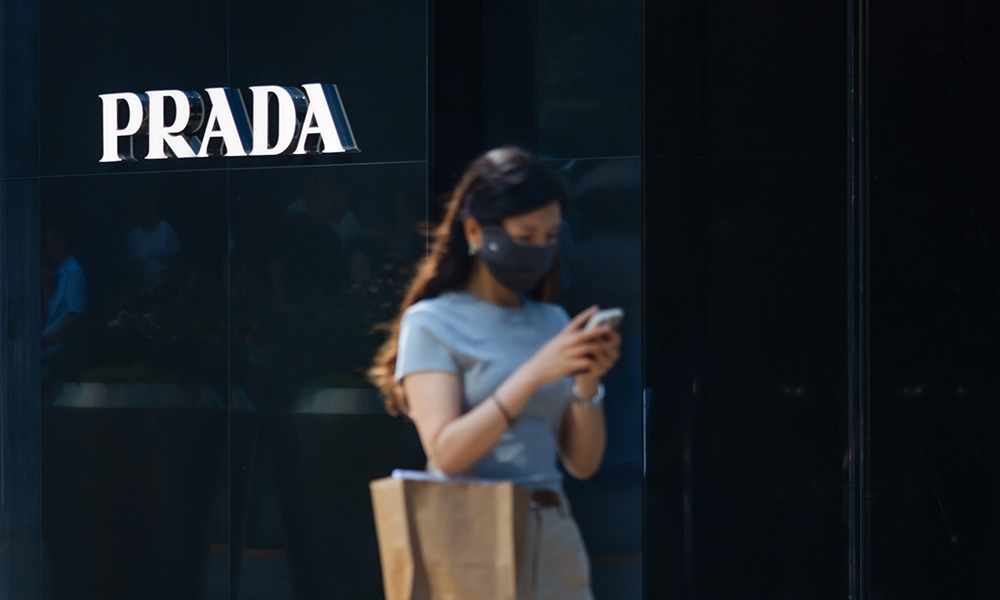
在經(jīng)濟(jì)動(dòng)蕩時(shí)期,,財(cái)富往往會(huì)成為政治化議題,。
在特朗普2.0時(shí)代,,這意味著會(huì)圍繞誰(shuí)應(yīng)納稅,、稅額多少、怎樣界定“富裕階層”以及如何調(diào)動(dòng)私人資本以解決公共財(cái)政問(wèn)題展開爭(zhēng)論,。
美國(guó)國(guó)會(huì)預(yù)算辦公室(CBO)估算顯示,,白宮推出的“大而美法案”存在爭(zhēng)議:該政策將致使最貧困的美國(guó)人每年損失約1600美元,而最富有家庭的年收入則平均增加1.2萬(wàn)美元,。
這得益于政策調(diào)整,,例如將遺產(chǎn)和贈(zèng)與免稅額度提升至1500萬(wàn)美元,以及將州和地方稅(SALT)抵扣上限從1萬(wàn)美元提升至4萬(wàn)美元,。
瑞銀集團(tuán)首席經(jīng)濟(jì)學(xué)家保羅·唐納文指出,,在當(dāng)下圍繞財(cái)富稅展開的辯論里,存在一個(gè)關(guān)鍵問(wèn)題:美國(guó)那些較為富裕的選民,,常常并未意識(shí)到自己屬于富裕階層,。
上周在一次圓桌討論中,唐納文解釋道:“我們?cè)谟懻撠?cái)富稅和遺產(chǎn)稅等議題時(shí),,愈發(fā)察覺(jué)到一個(gè)饒有趣味的現(xiàn)象……即人們對(duì)財(cái)富的認(rèn)知與實(shí)際情況之間存在差距,。”
“人們會(huì)說(shuō),,‘沒(méi)錯(cuò),,我們?cè)搶?duì)百萬(wàn)富翁征收財(cái)富稅,可我不屬于百萬(wàn)富翁之列’,,而事實(shí)上,,如果你在曼哈頓擁有一套兩居室公寓,,從定義上講,你已然是百萬(wàn)富翁,?!?/p>
唐納文繼續(xù)指出,社交媒體也在扭曲人們對(duì)財(cái)富的認(rèn)知,。他表示,,即便財(cái)富不平等狀況并未發(fā)生改變,人們也會(huì)因網(wǎng)上分享的奢侈生活而感覺(jué)自己處境愈發(fā)糟糕,。
“因此,,人們或許再度陷入對(duì)自身財(cái)富的認(rèn)知與現(xiàn)實(shí)狀況的混淆之中?!碧萍{文補(bǔ)充道,。
“許多人雖家境富裕,卻自感處于劣勢(shì),,只因他們未能過(guò)上社交媒體網(wǎng)紅那般奢華的生活,。”
奢侈品羞恥
隨著財(cái)富日益成為引發(fā)社會(huì)分歧的話題——甚至富裕階層也在偏離自身實(shí)際處境——消費(fèi)者已開始抑制對(duì)具有身份象征意義的商品和體驗(yàn)的購(gòu)買行為,。
貝恩公司上周發(fā)布的奢侈品行業(yè)春季報(bào)告顯示,,該行業(yè),尤其是個(gè)人用品業(yè)務(wù),,呈現(xiàn)出萎縮態(tài)勢(shì),。
報(bào)告合著者克勞迪婭·達(dá)爾皮齊奧向《財(cái)富》雜志透露,“奢侈品羞恥”這一概念首次出現(xiàn)在2008年金融危機(jī)期間,,彼時(shí)數(shù)百萬(wàn)美國(guó)人失去住房和工作,,財(cái)富被視為庸俗之物。
達(dá)爾皮齊奧補(bǔ)充稱,,奢侈品商店開始廣泛使用白色紙袋,,以便讓消費(fèi)者將所購(gòu)商品帶走,原因在于人們不愿被人看到拎著印有設(shè)計(jì)師品牌的購(gòu)物袋,。
“在美國(guó),,這一現(xiàn)象是自我驅(qū)動(dòng)的;人們出于羞恥感而修正自身行為,?!?
達(dá)爾皮齊奧補(bǔ)充道,對(duì)于這種社會(huì)緊張情緒,,奢侈品牌應(yīng)弱化對(duì)“精英形象”的渲染,,轉(zhuǎn)而聚焦于成為文化與創(chuàng)新的堡壘。
富者愈富
不過(guò),,僅僅因?yàn)楦辉kA層要么不愿承認(rèn)自身財(cái)富,,要么尚未意識(shí)到自身所擁有的財(cái)富,,并不意味著推動(dòng)其資產(chǎn)增長(zhǎng)的引擎會(huì)放緩。
唐納文在回答《財(cái)富》雜志提問(wèn)時(shí)表示:“我們需要考慮兩個(gè)相互獨(dú)立的驅(qū)動(dòng)因素,,且它們并不會(huì)對(duì)財(cái)富增長(zhǎng)的驅(qū)動(dòng)要素產(chǎn)生影響,。首當(dāng)其沖的便是經(jīng)濟(jì)民族主義的抬頭?!?/p>
只需看看特朗普的“美國(guó)優(yōu)先”倡議便可知一二,,但唐納文補(bǔ)充說(shuō),這種行為在其他國(guó)家也普遍存在,。
唐納文補(bǔ)充說(shuō),,影響富人消費(fèi)模式的第二個(gè)因素在于,他們的重心從商品轉(zhuǎn)向享樂(lè),。
“常有人問(wèn)我:經(jīng)濟(jì)學(xué)家口中的享樂(lè)指的是什么,?答案是任何能在Instagram上分享的事物,”唐納森對(duì)《財(cái)富》雜志說(shuō),?!氨热绯鰢?guó)旅行,外出用餐,,泰勒·斯威夫特(Taylor Swift)的演唱會(huì),。公平來(lái)講,這也包括服裝,,因?yàn)槿绻阋贗nstagram分享最新餐食,,顯然需要身著新衣出鏡,?!?
“這些與財(cái)富創(chuàng)造無(wú)關(guān)的趨勢(shì)……我們必須將其納入考量范疇,因?yàn)樗鼈兛赡軙?huì)營(yíng)造‘奢侈品羞恥’的表象,,而實(shí)際上,,這只是由于其他原因?qū)е孪M(fèi)模式發(fā)生變化?!保ㄘ?cái)富中文網(wǎng))
譯者:中慧言-王芳
在經(jīng)濟(jì)動(dòng)蕩時(shí)期,,財(cái)富往往會(huì)成為政治化議題。
在特朗普2.0時(shí)代,,這意味著會(huì)圍繞誰(shuí)應(yīng)納稅,、稅額多少、怎樣界定“富裕階層”以及如何調(diào)動(dòng)私人資本以解決公共財(cái)政問(wèn)題展開爭(zhēng)論,。
美國(guó)國(guó)會(huì)預(yù)算辦公室(CBO)估算顯示,,白宮推出的“大而美法案”存在爭(zhēng)議:該政策將致使最貧困的美國(guó)人每年損失約1600美元,而最富有家庭的年收入則平均增加1.2萬(wàn)美元,。
這得益于政策調(diào)整,,例如將遺產(chǎn)和贈(zèng)與免稅額度提升至1500萬(wàn)美元,,以及將州和地方稅(SALT)抵扣上限從1萬(wàn)美元提升至4萬(wàn)美元。
瑞銀集團(tuán)首席經(jīng)濟(jì)學(xué)家保羅·唐納文指出,,在當(dāng)下圍繞財(cái)富稅展開的辯論里,,存在一個(gè)關(guān)鍵問(wèn)題:美國(guó)那些較為富裕的選民,常常并未意識(shí)到自己屬于富裕階層,。
上周在一次圓桌討論中,,唐納文解釋道:“我們?cè)谟懻撠?cái)富稅和遺產(chǎn)稅等議題時(shí),愈發(fā)察覺(jué)到一個(gè)饒有趣味的現(xiàn)象……即人們對(duì)財(cái)富的認(rèn)知與實(shí)際情況之間存在差距,?!?/p>
“人們會(huì)說(shuō),‘沒(méi)錯(cuò),,我們?cè)搶?duì)百萬(wàn)富翁征收財(cái)富稅,,可我不屬于百萬(wàn)富翁之列’,而事實(shí)上,,如果你在曼哈頓擁有一套兩居室公寓,,從定義上講,你已然是百萬(wàn)富翁,?!?/p>
唐納文繼續(xù)指出,社交媒體也在扭曲人們對(duì)財(cái)富的認(rèn)知,。他表示,,即便財(cái)富不平等狀況并未發(fā)生改變,人們也會(huì)因網(wǎng)上分享的奢侈生活而感覺(jué)自己處境愈發(fā)糟糕,。
“因此,,人們或許再度陷入對(duì)自身財(cái)富的認(rèn)知與現(xiàn)實(shí)狀況的混淆之中?!碧萍{文補(bǔ)充道,。
“許多人雖家境富裕,卻自感處于劣勢(shì),,只因他們未能過(guò)上社交媒體網(wǎng)紅那般奢華的生活,。”
奢侈品羞恥
隨著財(cái)富日益成為引發(fā)社會(huì)分歧的話題——甚至富裕階層也在偏離自身實(shí)際處境——消費(fèi)者已開始抑制對(duì)具有身份象征意義的商品和體驗(yàn)的購(gòu)買行為,。
貝恩公司上周發(fā)布的奢侈品行業(yè)春季報(bào)告顯示,,該行業(yè),尤其是個(gè)人用品業(yè)務(wù),,呈現(xiàn)出萎縮態(tài)勢(shì),。
報(bào)告合著者克勞迪婭·達(dá)爾皮齊奧向《財(cái)富》雜志透露,“奢侈品羞恥”這一概念首次出現(xiàn)在2008年金融危機(jī)期間,,彼時(shí)數(shù)百萬(wàn)美國(guó)人失去住房和工作,,財(cái)富被視為庸俗之物,。
達(dá)爾皮齊奧補(bǔ)充稱,奢侈品商店開始廣泛使用白色紙袋,,以便讓消費(fèi)者將所購(gòu)商品帶走,,原因在于人們不愿被人看到拎著印有設(shè)計(jì)師品牌的購(gòu)物袋。
“在美國(guó),,這一現(xiàn)象是自我驅(qū)動(dòng)的,;人們出于羞恥感而修正自身行為?!?
達(dá)爾皮齊奧補(bǔ)充道,,對(duì)于這種社會(huì)緊張情緒,奢侈品牌應(yīng)弱化對(duì)“精英形象”的渲染,,轉(zhuǎn)而聚焦于成為文化與創(chuàng)新的堡壘,。
富者愈富
不過(guò),僅僅因?yàn)楦辉kA層要么不愿承認(rèn)自身財(cái)富,,要么尚未意識(shí)到自身所擁有的財(cái)富,,并不意味著推動(dòng)其資產(chǎn)增長(zhǎng)的引擎會(huì)放緩。
唐納文在回答《財(cái)富》雜志提問(wèn)時(shí)表示:“我們需要考慮兩個(gè)相互獨(dú)立的驅(qū)動(dòng)因素,,且它們并不會(huì)對(duì)財(cái)富增長(zhǎng)的驅(qū)動(dòng)要素產(chǎn)生影響,。首當(dāng)其沖的便是經(jīng)濟(jì)民族主義的抬頭?!?/p>
只需看看特朗普的“美國(guó)優(yōu)先”倡議便可知一二,,但唐納文補(bǔ)充說(shuō),這種行為在其他國(guó)家也普遍存在,。
唐納文補(bǔ)充說(shuō),,影響富人消費(fèi)模式的第二個(gè)因素在于,他們的重心從商品轉(zhuǎn)向享樂(lè),。
“常有人問(wèn)我:經(jīng)濟(jì)學(xué)家口中的享樂(lè)指的是什么,?答案是任何能在Instagram上分享的事物,,”唐納森對(duì)《財(cái)富》雜志說(shuō),。“比如出國(guó)旅行,,外出用餐,,泰勒·斯威夫特(Taylor Swift)的演唱會(huì)。公平來(lái)講,,這也包括服裝,,因?yàn)槿绻阋贗nstagram分享最新餐食,顯然需要身著新衣出鏡,?!?
“這些與財(cái)富創(chuàng)造無(wú)關(guān)的趨勢(shì)……我們必須將其納入考量范疇,,因?yàn)樗鼈兛赡軙?huì)營(yíng)造‘奢侈品羞恥’的表象,而實(shí)際上,,這只是由于其他原因?qū)е孪M(fèi)模式發(fā)生變化,。”(財(cái)富中文網(wǎng))
譯者:中慧言-王芳
In times of economic volatility, wealth is often a subject that becomes politicized.
Under Trump 2.0, that means debates over who should be taxed and by how much, what constitutes ‘wealthy’, and how that private capital should be mobilized to address public finance concerns.
The Oval Office’s ‘One, Big, Beautiful Bill’ has divided opinion, after estimates from the Congressional Budget Office (CBO) found the policies would cost the poorest Americans roughly $1,600 a year while increasing the income of the wealthiest households by an average of $12,000 annually.
This is courtesy of policy tweaks such as an increased exemption threshold for estates and gifts to $15 million, as well as changing the cap amount on deductions for state and local taxes (SALT) from $10,000 to $40,000.
One issue with current debates about wealth taxes, says UBS’s chief economist Paul Donovan, is that often, America’s wealthier voters don’t realize they are rich.
Speaking on a roundtable last week, Donovan explained: “A rather interesting issue that we’re starting to see come up more and more in discussions … about things like wealth taxes and inheritance taxes is that increasingly there is a gap between the perception of wealth and the reality of wealth.
“So people will say, ‘yes, we must be doing a wealth tax for millionaires, but not me, I don’t count as a millionaire’ when in fact, you own a two-bedroom apartment in Manhattan. You are by definition, a millionaire.”
Donovan continued that social media also distorts wealth. Even if wealth inequality hasn’t changed, he said, people feel worse off because of the extravagance shared online.
“As a result, people are perhaps again getting more confused between their perception of their wealth and the realities of their wealth,” Donovan added.
“Many people are wealthy but they perceive themselves as somehow being disadvantaged because they’re not living the best life of a social media influencer.”
Luxury shame
With wealth becoming an increasingly divisive topic socially—with even the well-off distancing themselves from the reality of their situation—consumers are already curbing their status symbol buys and experiences.
Bain&Co’s spring update on the luxury sector, released last week, shows the industry’s personal goods business in particular has shrunk.
Claudia D’Arpizio, one of the authors of the report, tells Fortune the phrase ‘luxury shame’ was first coined during the 2008 financial crisis when wealth was perceived as gauche given the millions of Americans who had lost their homes and jobs.
D’Arpizio added that luxury stores more widely stocked white paper bags to send consumers off with their purchases because individuals didn’t want to be seen with designer carrier bags.
“In the U.S., that was self-induced; people were correcting their behaviors because they were ashamed,” D’Arpizio continued. The trend now, led by Chinese consumers, is governmental.
This social tension is spreading West, added D’Arpizio, meaning luxury brands should focus less on the perception of being elite and more on being a bastion of culture and innovation.
Rich get richer
That being said, just because the wealthy either don’t want or don’t realize they are rich, that doesn’t mean the engines generating their assets are moving any slower.
“There are two independent drivers that we need to consider, which have no impact on the driver of wealth growth,” Donovan said in response to a question from Fortune. “The first of these is the rise of economic nationalism.”
One need only look at Trump’s America-first initiative, but Donovan added the behavior is also prevalent in nations like China.
Donovan added that a second factor shaping the wealthy’s approach to consumption is that their focus is less on goods and more on fun.
“A question I’m often asked is: What does an economist mean by having fun? The answer is anything you can post about on Instagram,” Donovan tells Fortune. “So it’s foreign travel, it’s meals out, it’a Taylor Swift concerts. To be fair, it is also clothing because obviously, if you’re Instagramming your latest meal, you need to do so in a new outfit.
“These trends which are independent of the whole wealth creation … we’ve got to factor in because they can give the appearance of shame about wealth when in actual fact it’s simply changing consumption patterns for other reasons.”






